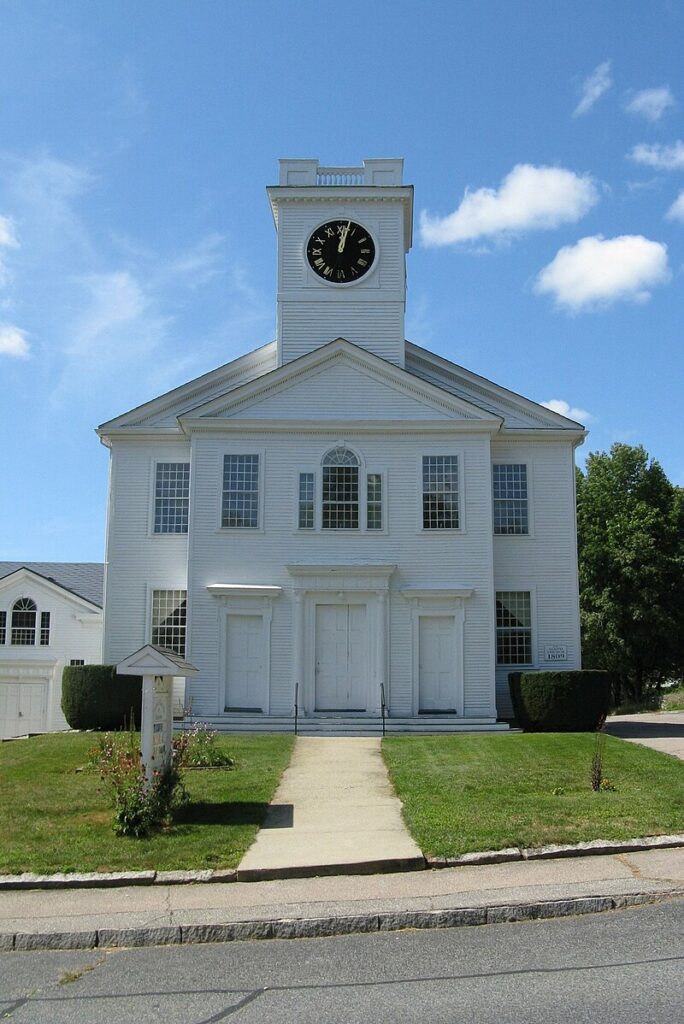Assonet, MA, located within Freetown, has a rich history marked by its scenic landscapes along the Assonet River and its long-established villages. Established in 1659, Assonet grew as a center for early industries such as shipbuilding, lumber, and even ice harvesting, thanks to its natural resources and river access. A unique aspect of Assonet’s history is its connection to the local Native American tribes who originally inhabited the area. They maintained a presence until European settlers arrived and reshaped the landscape through agriculture and trade.
One significant landmark in Assonet is the North Church, built in 1809, which served the local Congregational community and later merged with other congregations to form the United Church of Assonet. The church houses a bell cast by Paul Revere, adding a historical touch that connects the town to America’s revolutionary era. Also notable is St. Bernard’s Church, built in the 1930s, which highlights the town’s evolving religious landscape as it adapted to a growing Catholic population in the early 20th century.
Today, Assonet retains its historical charm with sites like the Village School, a well-preserved 19th-century school building, and the scenic Profile Rock, which is tied to local Native American legends and offers sweeping views of the surrounding area. These sites reflect the area’s dedication to preserving its history and celebrating its heritage.





